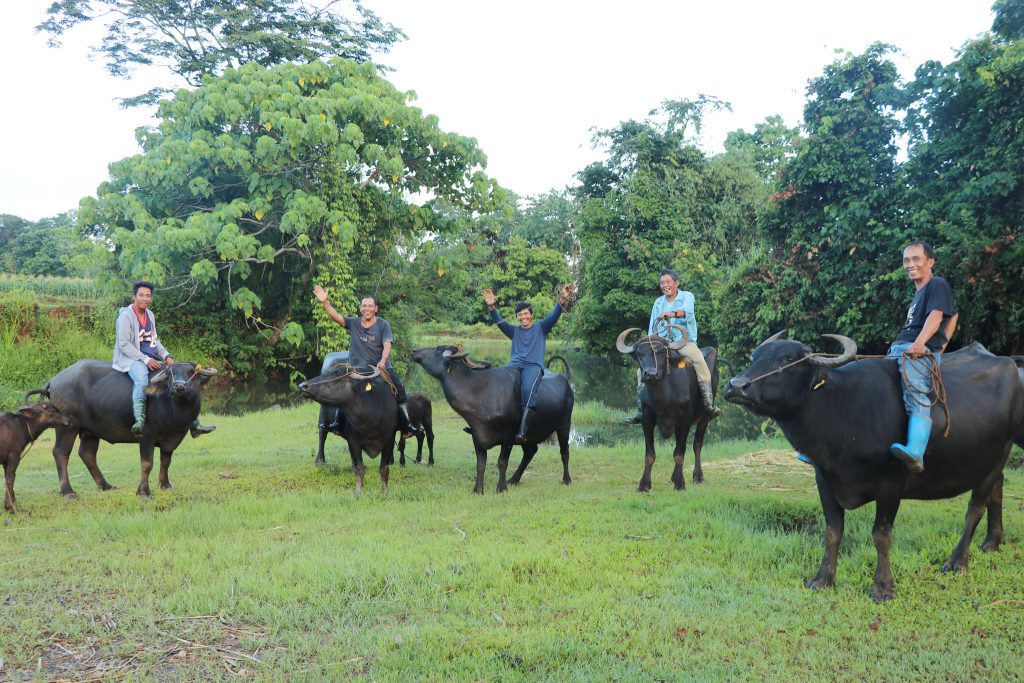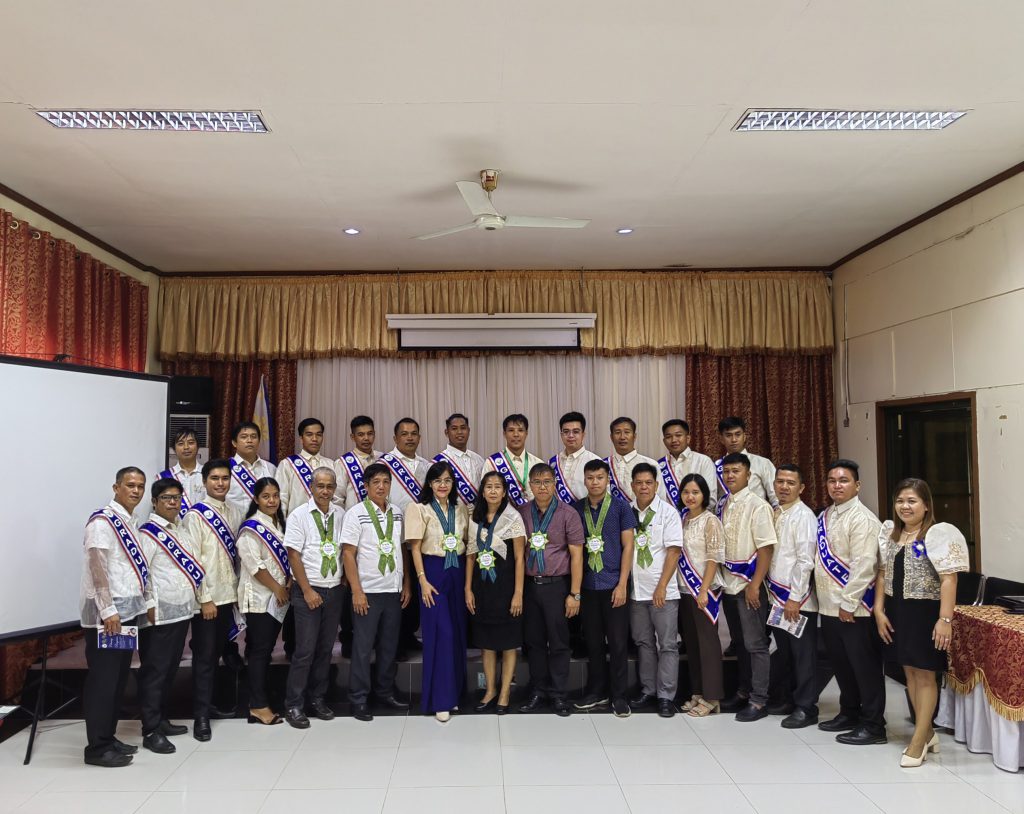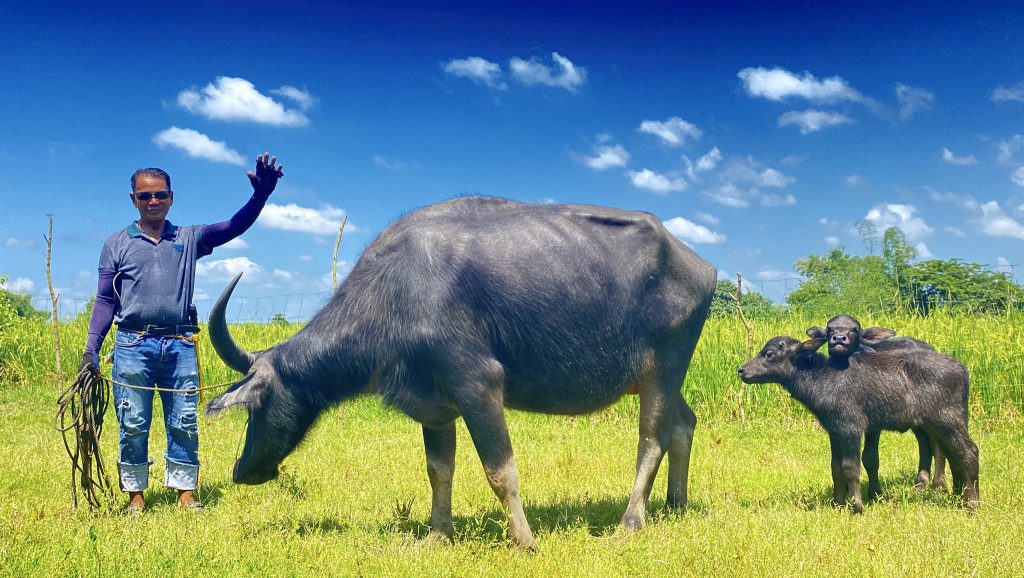Carabao takes spotlight in farmers’ congress
“The carabao remains the central figure of agriculture in the Philippines!”Pablo John Garcia, representative of the 3rd District of Cebu, emphasized this during his message in the opening program of the 9th National Carabao Conference (NCC) held on October 16-17 in Cebu. Cong. Garcia renowned the vital role of carabao as a sustainable livelihood for […]
9th carabao confab to showcase transformation, progress in carabao industry

The DA-Philippine Carabao Center is set to hold its 9th National Carabao Conference (NCC) in Cebu City on October 16-17, highlighting synergistic efforts among program partners to support the country’s carabao and dairy industries. NCC is an annual conference that serves as a dynamic platform to share and disseminate valuable information about technologies, skills, ideas, […]
‘CaraWow Radyo Eskwela sa Gatasang Kalabaw’ in CALABARZON concludes with 445 graduates

The Department of Agriculture-Philippine Carabao Center at the University of the Philippines Los Baños (DA-PCC at UPLB), in partnership with the Department of Agriculture – Agricultural Training Institute (DA-ATI) CALABARZON, recognized 445 farmer-enrollees during its School-on-the-Air on Dairy Buffalo Production (SOA-DBP) graduation ceremony on October 13, 2023, at Baker Hall, UP Los Baños. The first-ever […]
AI soldiers accept challenge of enhancing reproductive efficiency of water buffaloes

Fifteen selected artificial insemination (AI) technicians from different regions of Luzon recently gathered to acknowledge their active participation in a comprehensive training program. This training included both theoretical lectures and practical assessments. Preserving genetic diversity in water buffalo-endemic regions is crucial for the long-term and sustainable enhancement of buffalo genetics. As part of the Genetic […]
DA-PCC at CLSU soft launches ‘Cara Cuero’ carabao leather products

The DA-PCC at Central Luzon State University (DA-PCC at CLSU) has reached a significant milestone by unveiling its latest innovation – “Cara Cuero”, the brand name for carabao hide-derived leather products. This groundbreaking line of leather products was proudly presented during the CLSU Research Innovation and Development Festival (RIDe FEST).“Cara Cuero” was chosen as the […]
Initial 3k dairy animals set to build up local dairy herd

The Department of Agriculture-Philippine Carabao Center’s (DA-PCC) Dairy Herd Buildup Program (DHBP) is set to revolutionize the local dairy industry, ushering in a new era of increased local dairy stocks and milk production. In 2021, the Philippine Statistics Authority (PSA) reported an estimate of 2.82 million carabaos in the country, with only 17,907 listed as […]
Graduation ceremony celebrates success of agricultural extension workers in artificial insemination training

In celebration of skill and knowledge, the graduation ceremony for the “Basic Training Course on Artificial Insemination and Pregnancy Diagnosis in Large Ruminants” took place on September 29, 2023, at the Department of Agriculture-Agricultural Training Institute-Regional Training Center 02 (DA-ATI-RTC02), Cabagan, Isabela. This milestone marks the culmination of a collaborative effort between the DA-ATI-RTC02, the […]
Twin calves in Tarlac

Artificial insemination (AI) technology recently played a pivotal role in the birth of twin male and female calves in Barangay Laoang, Tarlac City, Tarlac. This remarkable achievement can be attributed to Jaime Bacsa Jr., a dairy farmer who, in addition to his previous career as a cook, currently serves as the Councilor of the barangay. […]
Government crossbreeding program boosts population of dairy carabaos in Region 2

The government’s crossbreeding program has significantly boosted the population of dairy carabaos in Region 2. San Agustin, a town in Isabela province, stands out as the “Crossbred Carabao Capital of the Philippines” due to its remarkable achievements in carabao crossbreeding. The municipality actively collaborates with the Department of Agriculture-Philippine Carabao Center (DA-PCC) to train Village-Based […]
DA-PCC launches Feed and Forage Development Project in Mindanao

The DA-Philippine Carabao Center (DA-PCC) has initiated the implementation of the Feed and Forage Development Project Technology Roll-out in Mindanao. This endeavor commenced with the ceremonial turnover of forage choppers at D&L Dairy Farm in M’lang, North Cotabato, on September 28. The project’s primary objective is to ensure a consistent supply of feed for the […]











